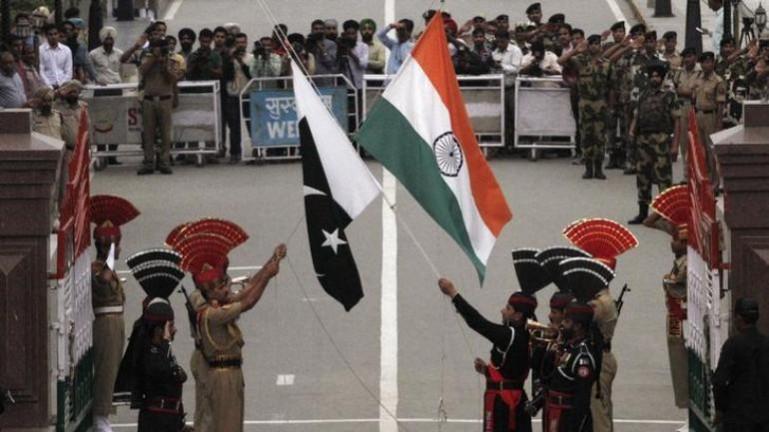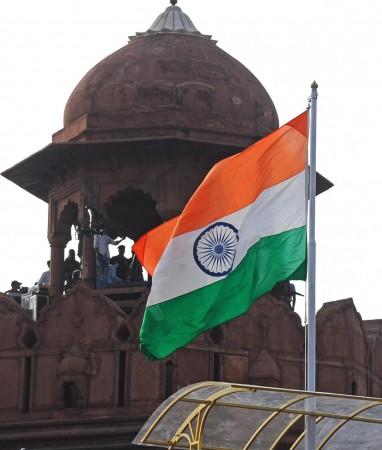India and Pakistan gained independence from British colonial rule on the 14th and the 15th of August 1947, respectively. Both countries have had a complex journey in terms of religious freedom, tolerance, democracy, economics, geopolitics, and human rights since their independence.
India is a country with a diverse population that practices various religions, including Hinduism, Islam, Christianity, Sikhism, Buddhism, and others. This diversity is a significant aspect of India's cultural heritage and is celebrated globally. The Indian Constitution guarantees religious freedom to all its citizens, which means that every individual has the right to practice and propagate their religion without any discrimination or interference from the state or other individuals. Despite the constitutional provisions, there have been instances of religious tensions and conflicts between different religious communities in India. These conflicts have sometimes led to violence, resulting in loss of life and property, yet India has reduced communal riots to a significant degree in the past decade.
Pakistan, on the other hand, is an Islamic Republic where Islam is the state religion, and the country's laws and policies are influenced by Islamic principles. This means that the government of Pakistan is expected to promote and protect the interests of the Muslim community in the country. Religious minorities in Pakistan, including Christians, Hindus, Sikhs, and Ahmadis, sometimes face challenges in practicing their faith freely. They are often discriminated against and persecuted by the majority Muslim community, which has led to violence and other forms of human rights violations. The UN made a note of the forced abduction of Hindu girls and women and their coerced marriages to Muslim men, often older to them in age.

Both countries have had a tumultuous relationship since their independence, with several wars and conflicts over issues such as the territory of Kashmir, over which several wars have been fought. The abrogation of Article 370 on 5 August 2019 has laid to rest this dispute to some extent though cross border terrorism continues. India is a democratic country with a multi-party system and regular elections, which means that citizens have the right to vote and choose their representatives in the government. India has maintained a democratic structure over the years, which means that the government is accountable to the people and there are checks and balances in place to prevent abuse of power.
However, like any democracy, India faces challenges such as corruption, which refers to the misuse of public office for personal gain, and regional conflicts, which refers to disputes between different regions or communities within the country. India also faces issues related to social and economic inequality, which means that some sections of society are disadvantaged in terms of access to resources, opportunities, and basic rights. In comparison, Pakistan is also a democratic country with a parliamentary system, which means that citizens have the right to vote and choose their representatives in the government.
However, Pakistan has experienced periods of military rule and political instability in its history, which means that the government has not always been accountable to the people and there have been instances of abuse of power. Efforts to strengthen democracy and ensure the protection of civil liberties have been ongoing in Pakistan, which means that there are initiatives to promote transparency, accountability, and human rights in the country. Yet, the recent drama unfolding where the ex-Prime Minister Imran Khan has been charged and jailed speaks a lot of how much the country must improve in electoral politics under the shadow of its military-industrial complex.
Also, both countries have signed international human rights conventions and have taken steps to address human rights issues. However, despite these efforts, there are concerns raised regarding human rights violations in both countries. In India, human rights organizations have raised issues such as caste discrimination, gender inequality, religious violence, and violations in conflict areas. In Pakistan, human rights concerns include restrictions on freedom of speech, attacks on journalists, persecution of religious minorities, and issues related to women's rights. Balancing human rights with cultural and religious sensitivities remains a challenge in both countries. Despite these challenges, India's efforts to strengthen democracy and ensure the protection of civil liberties have been hailed worldwide while violations in the strife-torn provinces of NWFP and Baluchistan remain a concern of human rights organisations.

The economic trajectories of India and Pakistan after 76 years of independence have been diverse. While both countries have made significant progress in various economic indicators, there are differences in the pace and nature of their economic growth. India has undergone significant economic growth since gaining independence from British rule in 1947.
The country has shifted from being primarily an agrarian economy to a more diverse and globally integrated economy. In the 1990s, India implemented economic liberalization policies that played a crucial role in opening the economy to foreign investment and promoting private sector participation. As a result of these policies, India has achieved impressive GDP growth rates over the years, although there have been fluctuations.
One of the key drivers of India's economic growth has been the emergence of sectors such as information technology, services, manufacturing, and pharmaceuticals. India has also become a global outsourcing hub, with many companies outsourcing their business processes to Indian firms. In addition, India has made significant advancements in sectors like space technology and renewable energy, which have contributed to the country's economic growth. Despite these achievements, India still faces challenges related to poverty, income inequality, unemployment, and access to basic services. The COVID-19 pandemic has also impacted the Indian economy, though it is reviving and thriving despite the setbacks.
Pakistan's economic growth has been influenced by various factors, including political instability, regional conflicts, and external economic shocks. Pakistan has experienced both periods of rapid economic growth and economic downturns. The country has made progress in areas such as agriculture, textiles, and manufacturing, but has faced challenges in sustaining consistent economic growth. Some of the challenges Pakistan has faced include inflation, fiscal deficits, and a high debt burden. Political instability and security concerns have also impacted Pakistan's investment climate and hindered its economic progress. Despite these challenges, Pakistan has implemented economic reforms in areas such as taxation, energy, and infrastructure to address these issues. The China-Pakistan Economic Corridor (CPEC) project is a major initiative aimed at improving transportation and energy infrastructure in Pakistan, which has the potential to boost economic growth in the country, but it remains elusive as of date.
Overall, the journey of India and Pakistan since their independence has been complex and fraught with challenges. While both countries have made progress in various areas, there is a vast difference in their approach to ensuring religious freedom, tolerance, democracy, economic progress, and human rights for all citizens.
[Disclaimer: This is an authored article by Arshia Malik. Views expressed are author's own.]

















